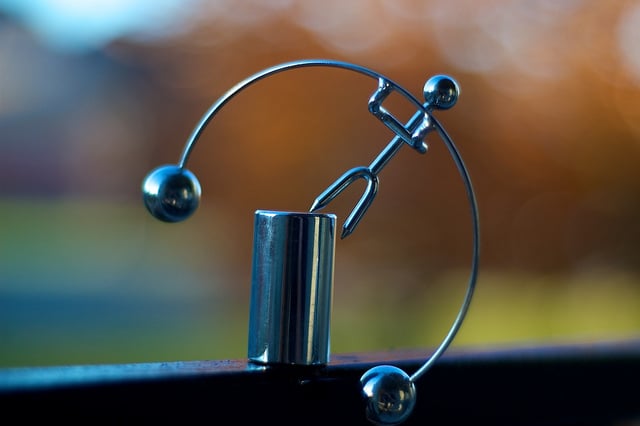by Trudy Boyle

“We no longer spend as much time keeping a meticulous house,” he said, “because we want more time for our family. We now take evening walks, play the piano and sing together, and go exploring on the week-ends. We can’t do everything; we have had to make choices.”
That was it. End of conversation. It is funny how an innocuous statement surrounding this one small issue stuck with me. At the time I thought it was simply the practical clarity they brought to this new reality, but now I think it was something much more significant.
What I witnessed that day was this: if you are going to take on a new purpose, you have to give something up. And who wants to do that?
This is tough in a world that says we can do it all and have it all. We are conditioned to add one more thing to the list, be it a baby, an academic degree, a bigger house, a spiritual practice, a spouse, a demanding new job, volunteering –you name it. Yet, something has to come off our plate to make room for our new purposes. The challenge is what to discard when we want to keep everything we’ve got.
And to make matters worse, when we give something up there’s an immediate loss and what we will gain in return isn’t apparent yet. For example, in order to lose weight we need to give up the excess salt, fat and sugars that we have become habituated to and replace them with healthy foods that don’t have the same initial appeal. We simply do it, without having any immediate satisfaction of feeling or looking better.
It’s the same with exercise. If we take the time to exercise we have to give up something else: an hour of sleep, a TV show, or working overtime. We even have to give up our excuse that we don’t have time. Unless we are willing to stick with it during that initial time of delayed satisfaction, we will soon let this purpose slide away. A lot of our well-meaning goals slip away because we never make the difficult choice of giving up something to create space for something new.
Changing purposes isn’t always voluntary. New purposes can come at us like a speeding train and we need to switch tracks quickly if we don’t want to be crushed. A relative who suffered from heart disease was told by his cardiologist to give up the following:
• fatty and sugary food,
• staying up past 9:00 PM
• no more than 40 hours of paid work a week
And he was told to make room for the following daily practices:
• Vegetarian meals
• 60 minute walks
• 30 minutes of meditation, yoga or other spiritual practice
Although he was a very intelligent man, he didn’t stick with it. He was looking for immediate results and when they weren’t forthcoming he decided that it wasn’t worth the effort. The sacrifice of something that he liked for something that may or may not pay off later was a choice he was unwilling to make.
One of my favorite stories of “giving up” something to a greater purpose comes from a collection of essays, Mindfulness and Meaningful Work, edited by Claude Whitmyer. It is an inspiring story of a creative solution to making a career change for ethical reasons.
“A group of engineers who worked in the nuclear weapons field had all come to the decision that their work and their spiritual beliefs were out of synch, but because they had families to support they were reluctant to just up and quit their jobs. So they got together and created a group support system. One at a time, the engineers left their jobs; they and their families were supported by the others in the group during the months it took them to find a new job in a more benign field.”
I doubt this was easy for any of the engineers and their families. Each of them had to give up a hefty portion of their wages and thus live on less. Each of them had to give up the security of their career. They gave up these things to regain integrity of purpose, to be true to their own values. To take responsibility for their lives.
Of course there is always a trap. Giving something up for something else can become a bit like event living. Take an Olympic athlete who gives up her social life, makes huge financial sacrifices, and trains for years to get on the podium. When she gives up almost everything else for a medal she sets herself up for failure. On the other hand, the athlete who makes sacrifices because she wants to be the best she can be for the race has no regrets. Disappointment, maybe, but she has made the sacrifice for the journey, not the outcome, and the experience becomes life changing no matter whether or not she gets a medal.
Occasionally we hear of someone who complains bitterly that they gave up everything for their children, their spouse or an ill parent. “And now look. It was all in vain.” If we only do something to achieve a certain outcome we are setting up conditions for failure. If we make choices because they are sensible, realistic and purposeful, we will have no regrets later regardless of how it turned out.
Does giving up something when we change our purposes provide balance to our lives? I don’t think so. My life is continually out of balance, but giving up things that don’t need to be done, in favour of things that I consider important assists me in staying healthy in body, mind, and spirit. It gives me a fall back position by asking, “is this the best way to spend my time now?” If the answer isn’t yes, I can self-correct, right then and there. And believe me it is a life’s practice.
Trudy Boyle lives in Ottawa where she delights in caring for her young grandchildren, along with writing, photography, making music, cycling, facilitating programs for those affected by cancer and saying YES to family, friends and important matters of the mind and heart.
(photo credit: Chani Krech)











